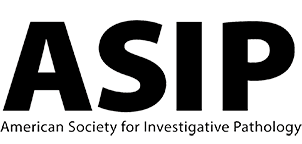ASIP Journal CME Programs
The JMD 2018 CME Program in Molecular Diagnostics is a journal-based annual program consisting of a series of at least 72 questions based on at least 3 selected articles in each of the 6 January - November 2018 issues (Volume 20, Numbers 1-6) of The Journal of Molecular Diagnostics (JMD). Bimonthly exams consisting of at least 12 questions that are based on selected articles appearing in each bimonthly issue of the Journal, will be available online on the Journal website for registered participants. 2018 Registration Rates: The JMD 2018 CME exams can only be accessed when your registration fee has been received and processed. After Journal CME registrations have been processed, the ASIP Education Office will send program subscribers information about how to access the CME exams. Deadline This activity (“JMD 2018 CME Program in Molecular Diagnostics”) has been planned and implemented in accordance with the accreditation requirements and policies of the Accreditation Council for Continuing Medical Education (ACCME) through the joint providership of the American Society for Clinical Pathology (ASCP) and the American Society for Investigative Pathology (ASIP). ASCP is accredited by the ACCME to provide continuing medical education for physicians. The ASCP designates this journal-based CME activity (“JMD 2018 CME Program in Molecular Diagnostics”) for a maximum of 18.0 AMA PRA Category 1 Credit(s)™. Physicians should claim only the credit commensurate with the extent of their participation in the activity.For more information regarding the CME Disclosure Policy and educational objectives, or to subscribe to the JMD 2018 CME Program in Molecular Diagnostics, please contact the ASIP Education Office by phone at (240) 283-9712; email ([email protected]), or mail your inquiry to 1801 Rockville Pike, Suite 300, Rockville, MD 20852. SAM Credit For more information regarding SAM credits, please contact the ASIP Education Office by phone at (240) 283-9712; email ([email protected]), or mail your inquiry to 1801 Rockville Pike, Suite 350, Rockville, MD 20852. Objective/Target Audience The objective of the JMD 2018 CME Program in Molecular Diagnostics is to increase basic and applied pathology knowledge, focusing on the molecular pathogenesis, diagnosis, prognosis, and the treatment of disease. The JMD 2018 CME Program in Molecular Diagnostics is designed to meet the participants’ education needs in the physician competency area of Medical Knowledge, as defined by the Accreditation Council for Graduate Medical Education (ACGME) and the American Board of Medical Specialties (ABMS), and to support participants’ lifelong learning towards a goal of promoting patient safety and improving patient care. The program is specifically targeted to pathologists and laboratory professionals who practice molecular pathology and researchers investigating molecular mechanisms of disease, pathology residents and fellows in molecular genetic pathology training programs, and clinicians and researchers interested in advances in molecular diagnostics. Educational ObjectivesUpon completion of the JMD 2018 CME Program in Molecular Diagnostics, participants should be able to:
In order to ensure balance, independence, objectivity and scientific rigor in all its educational activities, and in accordance with ACCME Standards, the ASCP requires that all individuals in a position to influence and/or control the content of ASCP CME activities disclose to the ASCP and subsequently to learners whether they do or do not have any relevant financial relationships with proprietary entities producing health care goods or services that are discussed in CME activities. Faculty are asked to use generic names in any discussion of therapeutic options, to base patient care recommendations on scientific evidence and to base information regarding commercial products/services on scientific methods generally accepted by the medical community. All ASCP CME activities are evaluated by participants for the presence of any commercial bias and thus input is used for subsequent CME planning decisions. The primary purpose of this journal-based CME activity is educational and the comments, opinions, and/or recommendations expressed by the faculty or authors are their own and not those of ASCP or ASIP. The Planning Committee members and staff of this journal-based CME activity have no relevant financial relationships with commercial interest to disclose. Relevant financial relationships of the authors of selected articles in this journal-based CME activity will be disclosed in a footnote to the published article and in each examination. |
